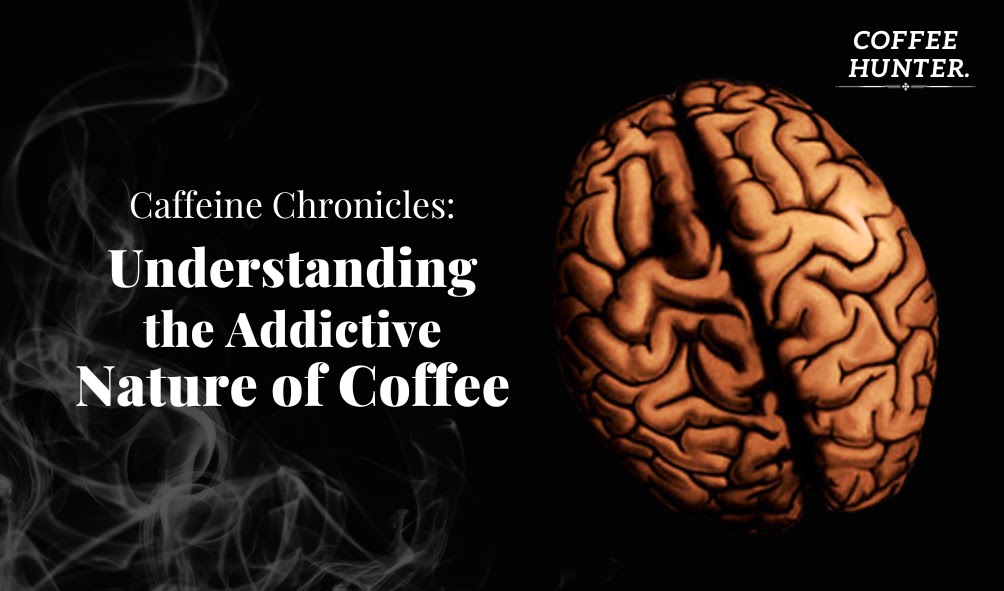 |
| Caffeine Chronicles: Understanding the Addictive Nature of Coffee |
Table of Contents
- The Science of Caffeine Addiction
- Caffeine Withdrawal Symptoms
- Tips for Cutting Back on Coffee
- Conclusion
- Frequently Asked Questions
The Science of Caffeine Addiction
Caffeine is the most commonly consumed psychoactive drug in the world. It works by blocking adenosine receptors in the brain, which normally make you feel tired. This blocking effect leads to increased brain activity, alertness, and energy.
When caffeine molecules attach to adenosine receptors, your brain responds by releasing several stimulants, including dopamine. Dopamine is known as the "feel-good" neurotransmitter and gives you a temporary mood boost after drinking coffee.
"Dopamine is released when we anticipate a reward, and consuming coffee becomes associated with anticipating that feel-good dopamine rush."
Over time, your brain starts to associate drinking coffee with the dopamine release that accompanies it. You actually begin to crave the good feeling you get from your daily coffee fix.
In essence, you are slightly addicted to the mood boost every time you drink coffee. Dopamine is released when we anticipate a reward, and consuming coffee becomes associated with anticipating that feel-good dopamine rush.
Tolerance Builds Up
To make matters worse, your brain will build up a tolerance to caffeine over time. As tolerance increases, you need more and more coffee to get the same dopamine-releasing effect.
This leads to dependence, since skipping your daily coffee leaves you feeling tired and sluggish without your usual dopamine spike to perk you up.
Caffeine Withdrawal Symptoms
When someone who regularly consumes caffeine suddenly stops, they can experience unpleasant caffeine withdrawal symptoms.
How severe these symptoms are depends on how much caffeine the person usually ingests on a daily basis. Heavy coffee drinkers are more likely to experience more intense withdrawal effects.
Symptoms of caffeine withdrawal can begin 12-24 hours after the last intake and can last up to one week. Common symptoms include:
- Headaches
- Fatigue
- Difficulty concentrating
- Depressed mood
- Irritability
- Nausea
- Muscle pain
- Stomach pain
"Symptoms of caffeine withdrawal can begin 12-24 hours after the last intake and can last up to one week."
These unwelcome symptoms are a sign of physical dependence on caffeine. Your brain has become so accustomed to functioning with caffeine that it struggles without it.
Tips for Cutting Back on Coffee
If you want to break free of caffeine dependence, gradually reducing your intake is the best approach. Here are some tips to get started:
- Switch to decaf or half-caff as an intermediate step.
- Set a max limit per day - i.e. 1-2 cups.
- Lengthen the time between cups.
- Avoid coffee after 2pm so it doesn't interfere with sleep.
- Try replacing coffee with non-caffeinated hot drinks like herbal tea.
- Stay hydrated and get plenty of rest to help with withdrawal symptoms.
- If headaches occur, use over-the-counter pain relievers as needed.
- Engage in healthy activities like exercise to boost mood naturally.
Don't quit cold turkey - this makes withdrawal much more difficult. Ease yourself off gradually over a period of weeks to minimize symptoms.
Conclusion
The addictive nature of coffee stems from its active ingredient, caffeine. Over time, your body develops a tolerance and dependence on caffeine's stimulant effects. Quitting coffee abruptly can trigger unpleasant withdrawal symptoms.
Being aware of your dependency is the first step. From there, gradually scaling back intake and replacing coffee with healthier alternatives can help free you from caffeine's hold.
Moderation is key - be mindful of your caffeine consumption and don't let it rule your daily routine.
Frequently Asked Questions
How much caffeine is too much?
Up to 400 mg of caffeine per day is generally considered safe for most healthy adults (about 4 cups of brewed coffee). More than 600 mg daily may cause side effects like insomnia, headaches, and irritability.
Is caffeine addictive?
Yes, caffeine activates the release of dopamine in the brain, leading to dependence over time. People trying to cut back on coffee can experience withdrawal symptoms when stopping.
Why do I get a headache when I don't drink coffee?
Caffeine withdrawal causes dilation of blood vessels in the brain, which can lead to painful headaches when stopping coffee consumption abruptly.
How long does caffeine withdrawal last?
Caffeine withdrawal symptoms peak by 1-2 days after stopping intake. Effects can last up to a week before subsiding as your body adjusts.







0 Comments